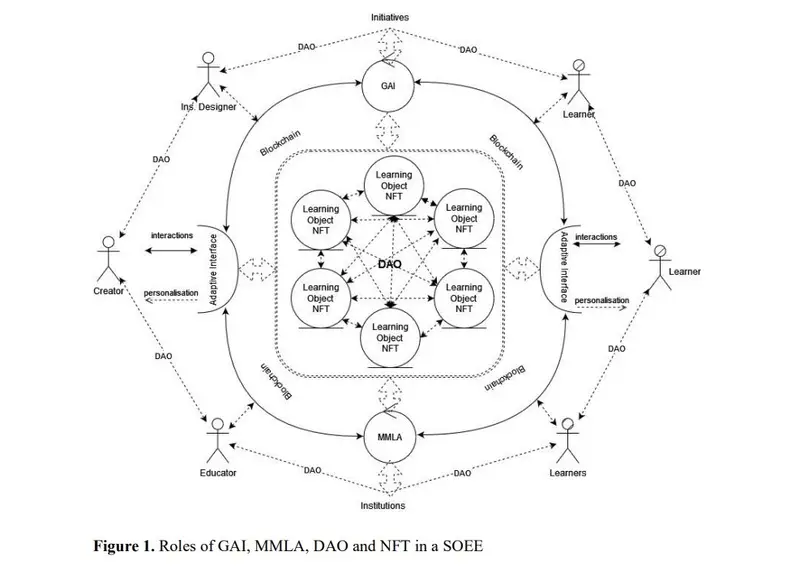Researcher envisions smart education system built on blockchain, DAO, NFT, and AI
Mehmet Fırat, a researcher at Anadolu University in Turkey, recently published research envisioning a multi-tech solution to the problems challenging the traditional educational system called the “Smart Open Education Ecosystem” (SOEE).
The research combines blockchain, decentralized autonomous organization (DAO), non-fungible token (NFT), multimodal learning analytics (MMLA), and artificial intelligence (AI) technologies to form a self-contained educational ecosystem.

Per a research paper authored by Firat and published on July 25, “Equity, fair opportunity, and access issues can be considered among the most significant handicaps of education in today's world.”
Firat proposes an “open education” system running blockchain that uses generative AI systems such as ChatGPT or the like to interface with students and personalize learning experiences. Lessons, learning resources, and credentials would be crafted as NFTs, and the entire process would be governed by a DAO.
According to Firat, the ultimate goal of open education is not just to democratize learning and make education accessible, but also to provide personalized learning experiences for everyone. Per the research paper:
“Even if the systems we have seen [as] examples of open universities and other structures support this philosophy and approach, they are far from this common goal because they have not yet been able to integrate artificial intelligence, blockchain and big data.”
While Firat’s research isn’t the first endeavor to explore open education on the blockchain, it is among the most ambitious. According to the paper, “the convergence of these technologies can […] pave the way for singularity in education,” Firat adds that “this could be the first social organization of humanity to reach singularity.
In the technological sense, a singularity is a paradigm wherein technology exceeds the capacity of its creators to control its evolution. An educational singularity based on technological convergence would, theoretically, be the point where lifelong free education becomes universal.
Related: Universities use blockchain-based storage to protect and democratize data
“Before this distant goal,” however, writes Firat, “there will be 12 main benefits of the SOEE.” These benefits include: accessibility, personalization, education quality, security and transparency, democratic governance, intellectual property and content value, global cooperation and integration, equality and equal opportunity, reusability of educational resources, preservation and promotion of cultural and linguistic diversity, innovation and experimental learning in education, and support for student success and career planning.
According to Firat, the potential benefits of SOEE merit further investigation by educational stakeholders and policy makers.
Comments
Post a Comment